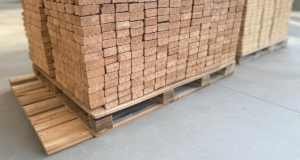 Jerusalem, July 5 – A review of political demonstrations in Israel and the areas under its control over the last two decades has concluded that hurling geological objects toward moving motor vehicles on nearby thoroughfares does not correlate with implementation of the demonstrators’ stated aims.
Jerusalem, July 5 – A review of political demonstrations in Israel and the areas under its control over the last two decades has concluded that hurling geological objects toward moving motor vehicles on nearby thoroughfares does not correlate with implementation of the demonstrators’ stated aims.
The study looked at both Israeli and Palestinian rock-throwers, and also considered whether it made a difference whether the political powers that be in each case were Israeli or Palestinian. In all cases, there seemed to be little, if any, correlation between the prevalence of rock-throwing demonstrators in favor of a given policy and the eventual implementation of that policy. The period of study extended from 1987 through 2013, but did not cover the violent protests of the last week in Jerusalem or Wadi Ara, as the political achievements, if any, of those demonstrations would not yet be apparent in policy change.
The researchers were prompted to conduct the study by an incident on Tuesday of this past week, when right-wing demonstrators in Jerusalem began attacking passers by of Arab ethnicity and throwing stones at cars at the city’s main entrance. The instigators of the unrest held their unauthorized demonstration at the same time that, several miles away in Modiin, families burying the three teenage murder victims whose fate had been unknown since they disappeared more than two weeks before. Apparently troubled that something constructive, positive, and dignified might emerge from the tragedy, the demonstrators scuffled with police and attacked anyone with an Arab appearance; at least one Arab man had to be rescued by the police. Also this past week, rioters in the eastern section of the city reacted to the murder of an Arab teenager by trashing several stations on the city’s light railway and throwing rocks and makeshift bombs at police.
In not a single case, concluded the study, could eventual policy change be attributed to the rock-throwing, a finding that is likely to have no impact whatsoever on those who engage in the behavior, says lead researcher Sisi Fuss. “Past trends are pretty clear when it comes to this kind of activity,” he explained. “The violent expression of political aspirations in a semi-organized fashion correlates most strongly with continued frustration, which feeds further violence. For some reason, however, the perpetrators of that violence seldom realize the fruitlessness of continued rock-throwing, and continue to damage their public image and thus their chance of actually effecting the change to which they claim to aspire.”
He noted that the limited Palestinian political autonomy represented by the Oslo accords could be seen as a rare case of success, in which years of Palestinian Intifada – including everything from stone-throwing to shooting, stabbing, and bombing attacks on Israelis and alleged collaborators – led to negotiations and self-rule, but that in fact the Palestinians are probably worse off now than they were before Oslo, given the corruption, unemployment, and ineptitude that characterize the Palestinian government.




